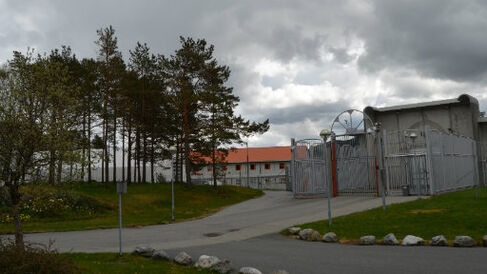Guest blog by Berit Johnsen

Nordic exceptionalism and politics
By Berit Johnsen, associate professor/head of research department, University College of Norwegian Correctional Service.
Over the last decade or so, there has been increasing interest in Norwegian prisons among academics, journalists, prison staff and others from all over the world. John Pratt’s two articles on Scandinavian or Nordic Exceptionalism in the British Journal of Criminology (2008) and Michael Moore’s documentary programs from Bastøy and Halden prisons have been central to this interest. I have lost track of how many visitors I have accompanied to these two prison – the most famous and frequently visited institutions – which have become the material expressions of a humane prison system. Representatives from the Norwegian Correctional Service – including myself – are also invited to seminars, conferences, and international gatherings to give presentations about our prison system. Representing a system that is often portrayed as having the utmost standards of decency and humanity is, of course, nice, but in representing Norwegian prisons I have mixed feelings, for two main reasons: first, the constant repetition of the belief that Norwegian prisons are highly humane has become an established truth, and the political implications are potentially worrying. What would happen if a Norwegian politician were to ask: ‘why should we have such good prison conditions?’ – ‘do they work?’ My second worry concerns the idea of Norwegian prisons having a high humane standard. Is it so that humane prison conditions are a dimension that some countries actually ‘have’ more of than others?
Prevailing Norwegian political documents state that humanity is a fundamental value in the Norwegian prison system. This is repeated in political debates, but this rhetoric implies that humanity is something we ‘have’: something that is supposed to just ‘be there’. Even if humanity is embedded in structures, laws and rules in the Norwegian prison system, I think we are making a huge mistake if we take a humane prison system for granted. Humane prison conditions are not something we have; they are something we do. Humanity in a prison is not something that just exists, it is exercised. Different groups of staff use their professional discretion in their practices of humanity, and humanity flows, perhaps more or less, in different prisons every day. What it is legitimate to do and not to do is, of course, regulated in laws and rules, but this is also about culture, and prison cultures do not exist in vacuums. They are in constant interaction with the world around them and are affected by the dominant political discourses in a society. The point I am trying to emphasise here is that humane prison conditions are dynamic constructions that are in a constant state of becoming. This constructivistic approach may be contested, but I think it is important, especially regarding the possible political implications of considering humane prison conditions as a static phenomenon.
In order to accomplish humane prison conditions, we need political will. It is not enough for politicians to state that humanity is a fundamental value for our prison system – it has to be operationalised. In some senses, this is achieved through in the four principles that govern the Correctional Service – the principle of normality, the principle of rights, the principle of serving the sentence as close to home as possible, and the principle of progression in the serving of the sentence – but this is not enough. We need a special political focus on humanity, especially when current political discourse about the prison system is dominated by punitivity, economy and efficiency. In recent years, prison sentences in the criminal law have increased so much that the Director General of Public Prosecution, who for decades has spoken warmly of hasher punishments, has stated that, we cannot increase them anymore for reasons of humanity and morality. This rise in punitivity is consistent with neo-liberalism and penal populism, which have also influenced Norwegian politics and society. Economy and efficiency are closely connected, and in an effort to reduce public sector costs, the Norwegian Government has introduced reforms aimed at reducing bureaucracy and increasing efficiency.
This ‘New Public Management’ initiative has resulted in the introduction of recidivism as an outcome-measure for the Correctional Service. It is in this political climate that I fear that humane prison conditions will be reduced to a means to reduce recidivism rates, rather than a goal in themselves. If researchers can prove that humane prison conditions have positive impacts on lowering recidivism rates, then politicians will most probably invest in them. The most probable scenario, however, is that it will prove difficult to find scientific evidence that humane prison conditions have a positive effect on recidivism rates. If so, I do not think the value of humanity will disappear in the Norwegian Correctional context, but how much can we decrease humanity in our prisons and still claim that they are humane? Can we believe that humanity just ‘exists’ in our system, and that its existence will endure? I do not think so. Humanity cannot be taken for granted. It requires continuous effort, and there will always be areas where humane prison conditions can be problematised and criticised, even in Norway.
Berit Johnsen is an Associate Professor and the Head of the Research Department at the University College of the Norwegian Correctional Service
How to cite this blog post (Harvard style)
Johnsen, B., (2018) Nordic exceptionalism and politics. Available at: https://www.compen.crim.cam.ac.uk/Blog/blog-pages-full-versions/guest-blog-by-berit-johnsen (Accessed [date]).
